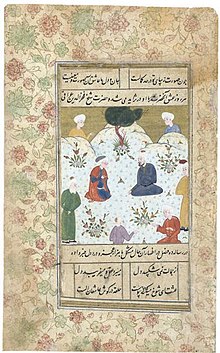
Pearl Petroleum has commenced arbitration proceedings against the Iraqi government concerning their joint venture on the Kurdish gas project. This legal action is a significant development in an ongoing conflict over operational and financial disputes that have persisted for several years.
The dispute centers on allegations from Pearl Petroleum, a consortium led by Dana Gas and Crescent Petroleum, claiming that the Iraqi government has not adhered to previously agreed-upon terms related to the development and export of natural gas from the Kurdistan Region. The project, which has been a major investment for the consortium, involves the extraction and processing of gas fields in the Kurdish region, a critical area for both regional energy security and the economic development of Iraq.
The legal action follows months of negotiations and attempts to resolve issues related to payments and contract terms. Pearl Petroleum alleges that the Iraqi government has failed to honor its financial obligations, affecting the consortium’s ability to operate effectively and meet project milestones. The consortium claims that these breaches have led to substantial financial losses and operational disruptions.
The Kurdish gas project is pivotal for the region’s economy, providing energy supplies that are crucial for both domestic use and export. It also plays a strategic role in Iraq’s energy sector, contributing significantly to the country’s overall gas production capacity. The arbitration process is expected to address these financial and operational grievances, with the potential for significant implications for the project’s future and the broader energy landscape in Iraq.
The Iraqi government has yet to publicly respond to the arbitration move. However, the outcome of these proceedings could impact the relationship between Baghdad and Erbil, the capital of the Kurdish region, where the project is based. The dispute highlights ongoing tensions within Iraq’s energy sector, reflecting broader issues related to federal and regional resource management and contractual obligations.
This arbitration is not isolated but part of a broader pattern of legal and financial challenges facing international energy companies operating in Iraq. The country’s complex political and economic environment often results in disputes over contracts and operational rights, affecting foreign investments and project execution.
The arbitration will involve a thorough examination of the contract terms, financial transactions, and operational responsibilities. Both parties will present their cases to an arbitration panel, which will then make a binding decision aimed at resolving the conflict. The process is expected to take several months, with outcomes potentially influencing future investment decisions in Iraq’s energy sector.
In addition to the immediate implications for the Kurdish gas project, the arbitration could set precedents for how similar disputes are handled in Iraq. It underscores the need for clear contractual terms and reliable dispute resolution mechanisms in international energy projects, particularly in regions with complex political and economic dynamics.


